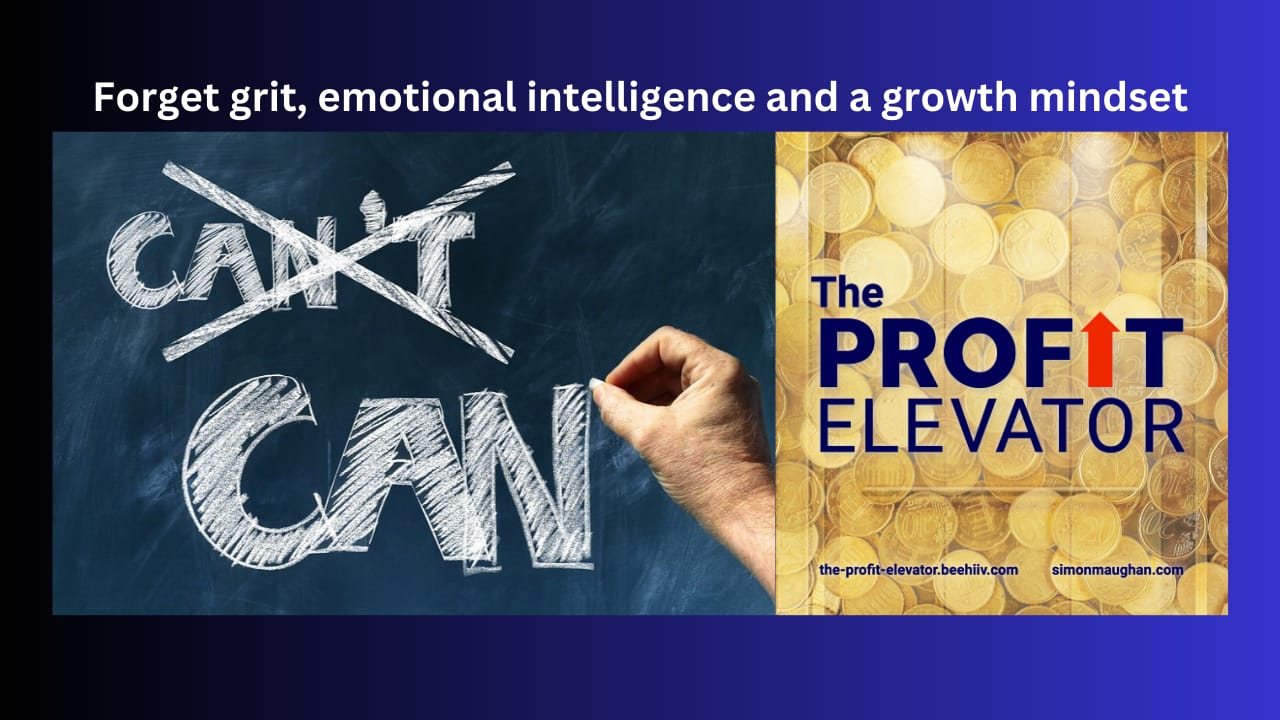
Interesting and Irrelevant
Why is there so much advice on how to be better? If it is valuable, why do so many people still need help? The answer lies in statistical significance.
Angela Lee Duckworth shot to fame with her book and TED talk “Grit: the power of passion and perseverance”. Duckworth’s extensive studies show that the path to achievement requires you to stay the course, regardless of setbacks.
The statistical methods are correct, but explain only 4% of the difference between individuals. While you may be someone whose life is transformed by persevering, the odds are that you won’t.
A growth mindset offers similar small results and most often among low performing students. Emotional intelligence adds 3-4% to average performance, once general intelligence and conscientiousness are account for.
Positive interventions, such as writing down 3 good things that happened each day, work but only deliver a 1% improvement.
The problem with these techniques is that they are one and done solutions. Once you learn to persevere, you then need practical advice on what to do. “Try again” only works for so long.
Rinse and Repeat
Building a business is like a science experiment. You come up with a theory and you test it. If it works you persist and if it doesn't, then you get a new theory.
This is why working with clients as early in the process as possible is the best way to achieve success. If there is demand for your product from early adopters then your theory is more likely to be correct, at least in principle. You also have a better chance of attracting investment.
Thereafter you must keep experimenting, failing and developing new ideas. The sole advantage that small firms have is flexibility. If they adopt big business bureaucratic processes then they fail.
Unfortunately it is not possible to will success. While emotional intelligence may increase the chance of creating a product with market fit, pivoting to be more emotionally intelligent will not change the fortunes of a poor product.
A lot of self help advice is useful for children to make the most of their opportunities. Don’t give up too soon, believe in self improvement, be aware of others’ feelings and think positive thoughts, are all constructive advice. But they are rarely game changing.
I cover the psychological tools I consider worthwhile in The Management Mentality Map. This is the first in my six step system to build repeatable commercial success.
The art is to design processes around these techniques and refine them on a regular basis. Some will work better than others and it’s important not to rely on one method over all others.
I guess I won’t be writing any best sellers, offering a single technique to transform your life and work. But I can offer advice based on 20 years’ analysing the most successful companies on three continents and a further 10 honing what works in small businesses.
I am loading The Management Mentality Map onto Udemy as I write. If you’d like a taster then this video was the most popular with my LinkedIn audience:
Questions to Ask and Answer
Are your products and services designed with potential clients?
Have you adopted a one and done approach to what works?
Do you regularly review business processes and improve them?
I’m Simon Maughan and I write The Profit Elevator as a guide for B2B firms seeking faster growth.
I recently recorded videos for 30 processes that help any business to scale. They are in six systems, with an exercise at the end of each video to put the process into practice.
Together these systems form The Profit Through Process Planner. If you’d like to know more then please visit my website.
If you found this letter valuable, please share it with a friend and a colleague.
